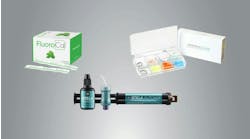BY Kristie Nation
Have you started using social media, only to find that it doesn't seem to be working for your practice? If so, take another look. If something isn't working, it's often because it's not being done correctly. Don't cut back on social media or abandon your efforts entirely. Instead, it's time for you to look at exactly what you've been doing, analyze the results, and seek out ways to be more productive.
Where are you spending your social media time?
Each social media network attracts a different kind of user. Crafters, for example, are likely to use Pinterest, while the young, male tech crowd gravitates to Google+ and Twitter. Meanwhile, mothers seeking advice on local businesses are more likely to check Facebook for recommendations from friends and trusted peers. If you are sharing content aimed at a certain age group or gender on the wrong platform, you could be spinning your wheels.
What are you posting?
Social media only works if you are actually interacting with people - socializing, if you will. That's why they call it "social" media! If all you ever do is post status updates about your practice hours or your monthly specials for new patients, you might as well stand on the corner of the closest intersection and yell, "Look at me!" at random intervals. Find out what your audience is interested in and join the conversation.
When are you posting?
Timing can be critical too. Twitter users are most active between 4 p.m. and 11 p.m., so posting during practice hours actually may not be the best strategy. On Facebook, you can find out when your fans are online by using the "Insights" tab on your page: click on "Posts," followed by "When Your Fans Are Online" to target the prime times for posting.
Who is your audience, and are you talking to them?
While sharing content that is of interest to your industry is great, remember that your target audience isn't your peers; it's potential and existing patients. The specs of your new iTero may be fascinating to another dentist, but the average patient just wants to know that the iTero will make his or her next impression easier.
Which special tools are you using?
On Facebook specifically, you can narrow your audience in many ways. For example, you can target predetermined demographics of users who should see your ads. You can even sort users by the devices, such as tablets and smartphones, through which they view Facebook.
Why is less sometimes more?
When it comes to social media, more doesn't equate to better. Quality beats quantity, whether you are talking about your followers or your daily posts. 1,000 active and engaged fans are better than 10,000 passive ones, and likewise, one post that gets 100 likes and 12 shares is better than 20 posts that generate no interaction. Concentrate on building a reputation for solid, helpful, informational content, and your followers will be high quality as well.
How do you measure results?
If you are participating in social media but not tracking results, how do you know if it is working or not? You don't. To measure your results: use the "Insights" provided by Facebook and/or the "Analytics" provided by Twitter to track clicks through to your website; designate a special phone number for use on social media posts so you can track calls made to your office via these channels; and find out if the time and money you are spending on social media is providing a meaningful return on investment. If you can identify what is working, you can duplicate positive results.
Don't give up on social media just yet. If what you've been doing isn't working, change tactics and try again. Social media remains one of the most effective ways to promote your practice online, offering word-of-mouth results on a massive scale. Your practice just has to learn the ropes to reap the rewards!
Kristie Nation is the founder and CEO of myDentalCMO, a marketing consulting firm that provides strategic marketing "treatment plans" exclusively for dental practices. The firm was founded with a mission to prevent dentists from wasting countless dollars marketing their practices ineffectively. She can be reached at [email protected] or (877) 746-4410.





